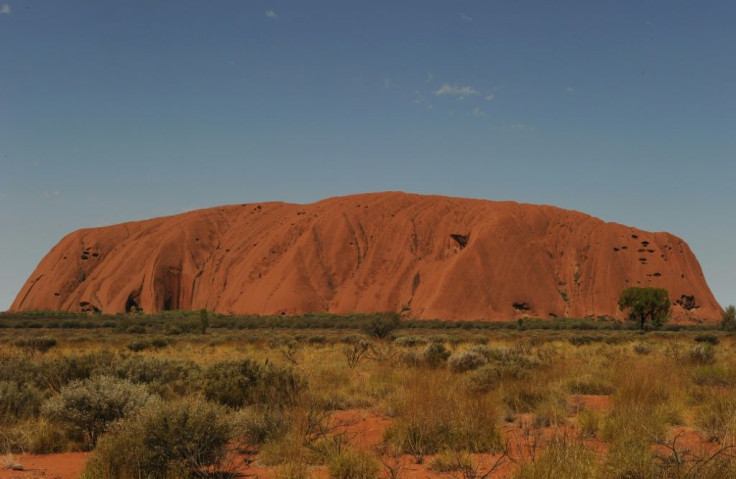Climbers Permanently Banned From Uluru, Australia's Sacred Red Rock

The sacred red rock named Uluru, located in Uluru-Kata Tjuta National Park in central Australia, has been permanently closed to tourists looking to climb the monolithic sandstone landmark. The indigenous Aboriginal people who attach spiritual significance to Uluru are rejoicing but tourists and those who earn a living from tourism are not so happy about the closure.
The world-famous site is 348 meters (1,142 ft) high, making it 24 meters (79 ft) taller than the Eiffel Tower in Paris. It is considered sacred to the Yankunytjatjara and Pitjantjatjara people (Anangu indigenous tribes) who are the traditional owners and guardians of the Uluru-Kata Tjuta National Park.
The Anangu people belong to the oldest culture known to man dating back 60,000 years. They believe that this landscape was created at the beginning of time by the travels of great ancestral beings. Uluru and the surrounding area called Kata Tjuta are said to provide physical evidence of these ancient events and have been used for traditional ceremonies and rites for over 10,000 years.
The first non-Aboriginal person to view Uluru was Ernest Giles, an Australian explorer in 1872. Regular tourism began in the 1950s and in 1985 the Australian government gave the land back to the Aboriginal people. The present-day park opened in 1995.
Mike Misso is the manager of the national park and has observed that the number of people wanting to climb Uluru has declined in recent years. He told Voice of America News: "Over many years, the number of people wanting to climb has actually declined. And before the climb closure was announced, it was less than 10 percent who actually climbed Uluru, so the numbers say. 20 years ago there were probably about 30 percent who wanted to climb and climbed, whereas the numbers have been declining over the last few years anyway.”
The current surge of climbers is likely due to the closure announcement as they see this as the last opportunity to make the climb. One climber said, "I understand it is a sensitive topic. My view is that Australia should be for all Australians. So, I have got no problem at all with people climbing the rock and I think it is a natural human instinct to see something like that and want to climb it.”
An Aboriginal elder named Donald Fraser hinted to Voice of America News that damage caused by tourists on the sacred ground is another reason why last Friday’s closing was requested. His sense of relief was evident when he said, “The burden will be lifted as of today, as I am speaking. I can feel it. Now is the time for the climb to have a good rest and heal up.”
© Copyright IBTimes 2024. All rights reserved.





















